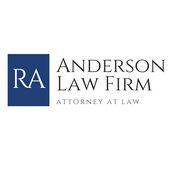
Chapter 13 bankruptcy reorganizes your debts into a long-term repayment plan. Each year, hundreds of thousands of people seek debt relief through Chapter 13. To understand if this is an option for you, here are answers to some of the more commonly asked questions on the subject.
A Guide to Chapter 13 Bankruptcy
What is the difference between Chapter 13 and Chapter 7 bankruptcy?
Chapter 13 is a restructuring of your debts so that you can better afford to pay them off. The debts are combined into a single payment plan, on which you will make monthly payments for anywhere from three to five years. While it is possible to negotiate and reduce certain amounts in the plan, debts are not erased as they are in Chapter 7. Chapter 7 eliminates most types of unsecured debt; creditors are not paid, and the courts discharge the majority of the filer's dues.
Who is an ideal candidate for Chapter 13?
This type of bankruptcy is sometimes referred to as a wage earner's plan because it is designed for working people who have enough income to make regular plan payments each month. Chapter 7 is intended for people who have little or no income and cannot realistically repay all that they owe. With Chapter 13, the filer must demonstrate that they have the ability to honor the terms of the plan and make regular payments.
Do I have to include all my debts in the plan?

If you are current on secured debts, you can continue to pay them as usual without having to include them in the plan. The two most common examples are mortgages and auto loans. If there are no past-due balances on these debts, they can remain outside the plan, but all other debts are typically included.
What are the benefits of Chapter 13?
Because you are repaying past-due balances, you remain in better standing with creditors. Though your credit score will initially take a hit, the bankruptcy won't stay on your credit report as long as it would with a Chapter 7 filing. Also, certain debts in the plan can often be reduced, ultimately requiring less pay than was originally owed. Chapter 13 bankruptcy lets you keep your property and avoid liquidation if you stay current on the repayment plan.
See if Chapter 13 bankruptcy is right for you by contacting Anderson Law Firm in Archdale, NC. For over 20 years, these qualified bankruptcy attorneys have been assisting residents of High Point and the surrounding area. From helping you file for bankruptcy and negotiating with creditors to representing you in court, they’ll provide superior support and legal aid throughout the entire process. Call (336) 431-7336 to schedule a consultation, or visit them online to learn more.
The information contained in this site is for general guidance on matters of interest only. The application and impact of laws can vary widely based on the specific facts involved. We are a Debt Relief Agency. We help people file for Bankruptcy Relief under the Bankruptcy Code.
About the Business
Have a question? Ask the experts!
Send your question

